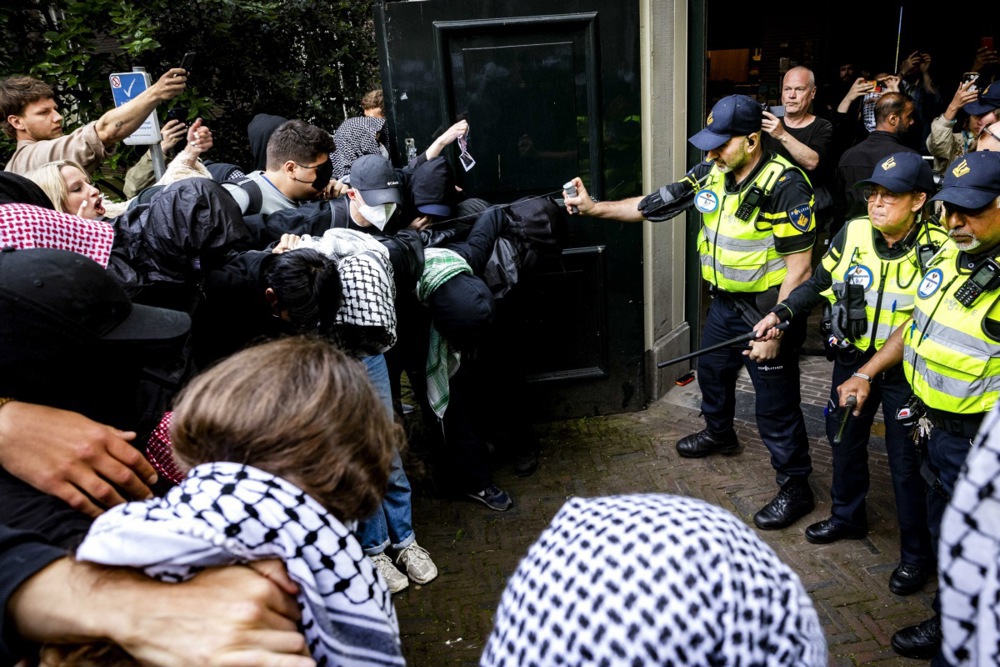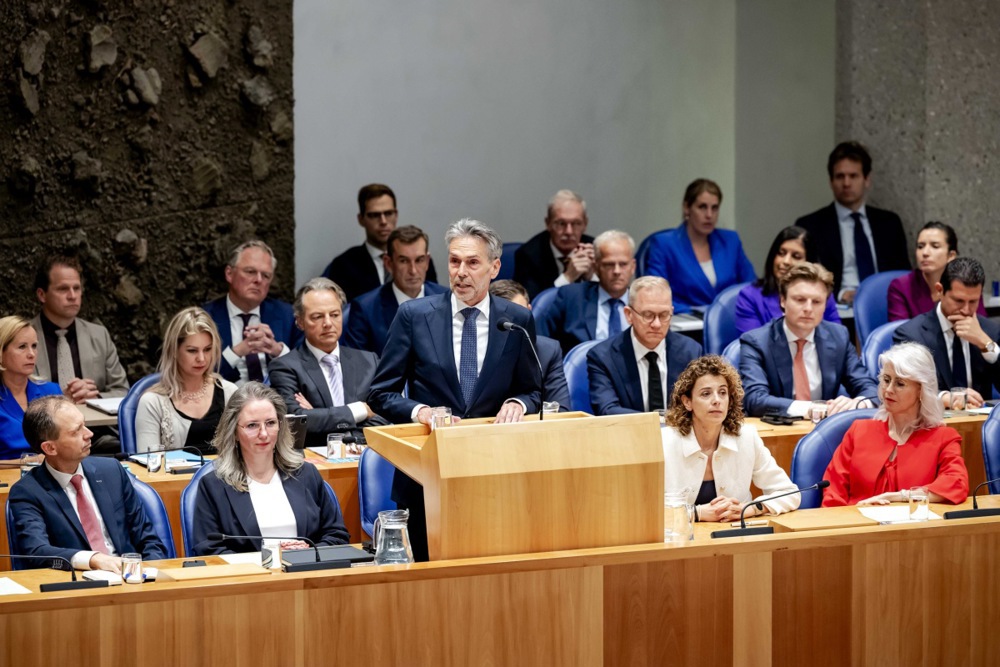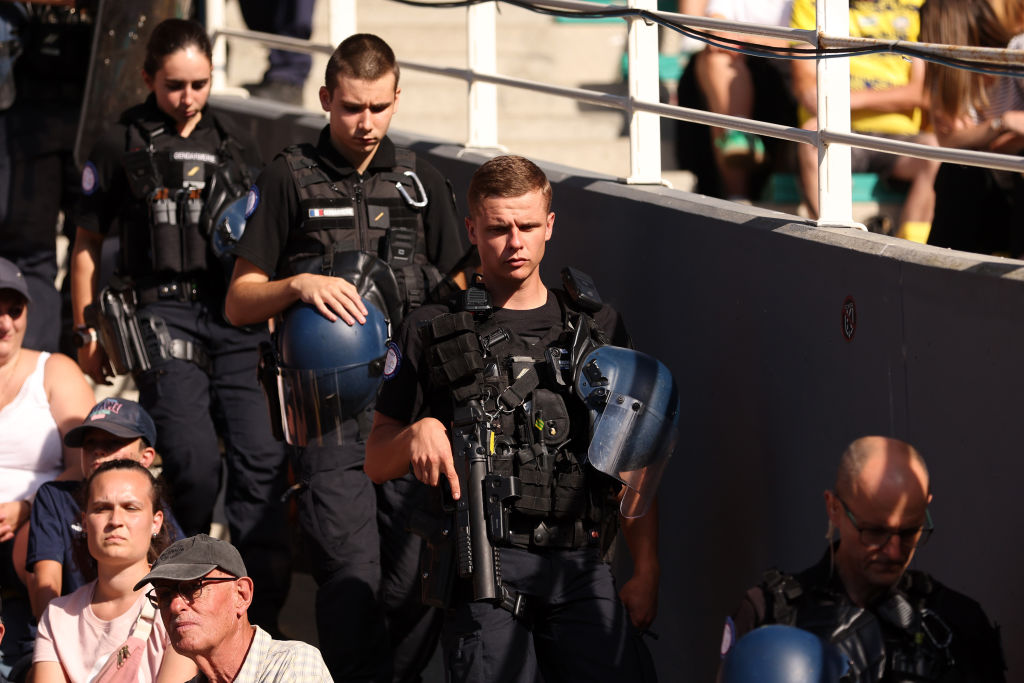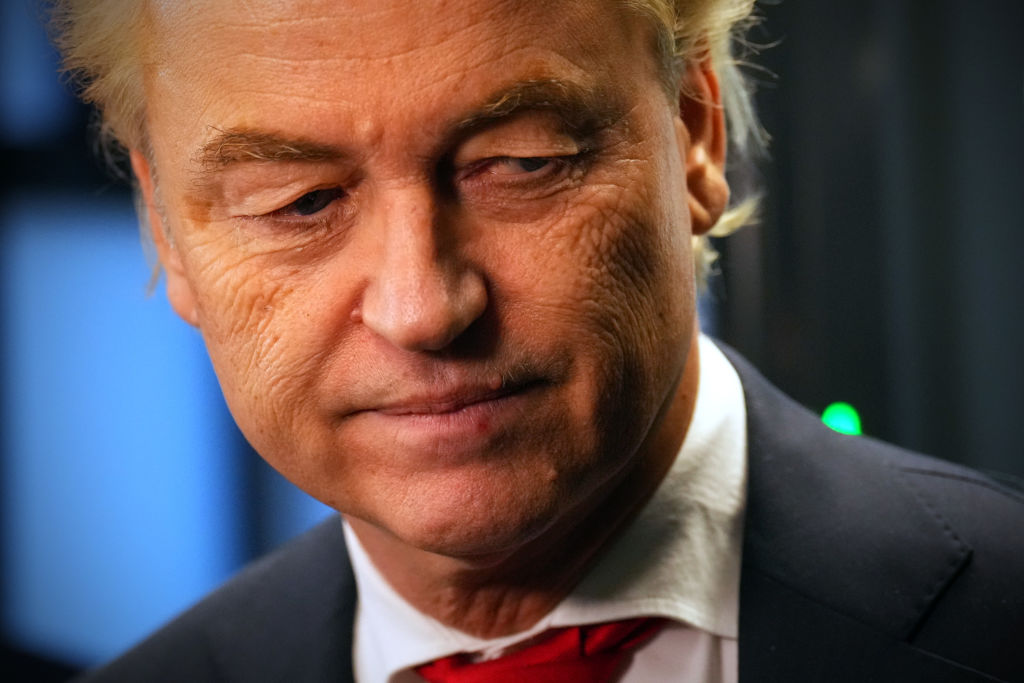Officers in the Dutch police force have reportedly been refusing to protect potential Jewish targets amid “moral dilemmas.”
Speaking to Jewish-Dutch weekly Nieuw Israëlisch Weekblad (NIW) on September 29, two veteran police officers now representing the Jewish Police Network, Marcel de Weerd and Michel Theeboom, said they were worried about apparent changes in the corps.
“There are colleagues who no longer want to protect Jewish targets or events. They talk about ‘moral dilemmas’ and I see a tendency emerging to give in to that. That would truly mark the beginning of the end. I’m concerned about that,” Theeboom said.
De Weerd concurred and added: “We see that leadership is struggling with this. Especially now, with the conflict in the Middle East, we risk drifting away from what we should stand for as a collective. We need to keep discussing this with each other.”
According to Theeboom, this has eroded trust between officers and de Weerd said there was increasing polarisation within the police.
Their story was picked up by the national daily De Telegraaf, in which Theeboom said that certain colleagues did not want to be deployed at the Dutch National Holocaust Museum in Amsterdam and refused food and drinks from the venue.
Mireille Beentjes, spokeswoman of the police force, told De Telegraaf she had heard of officers making moral objections, admitting there were “no strict policies” in force regarding that and that officers could have moral objections.
“We take moral objections into account when creating schedules. But if there’s an urgent task, you will be deployed, whether you want to or not,’ she said. “You are expected to behave professionally. Others shouldn’t notice anything.”
She referred to incidents of the burning of Qurans, where police officers had not wanted to be posted.
“It pains them when the Quran is burned, but at the same time, they still have to protect the people who do it,” Beentjes stressed.
She emphasised that the core principle remained that a police officer must fulfil their duties. “Neutrality is paramount — it’s always the guiding force. However, open dialogue about these issues is equally important.”
Commissioner of the Dutch National Police Janny Knol, in an apparent attempt at damage control, later said its leadership had “no understanding” of officers who did not want to protect Jewish targets due to moral objections.
He said internal discussions were being held about how the police should handle the situation.
“Police officers are human beings and have the right to their own opinions and emotions,” he said.
“But when it comes to people’s safety, that is our top priority. We are here for everyone. That is the foundation of our work as police officers.”
According to De Telegraaf, more stories have come to light about officers refusing to serve during a Quran burning, Jewish events and protests by climate activists with Extinction Rebellion.
In January of this year, a Quran-burning by the anti-Islam organisation Pegida ended in chaos and violence because, according to observers, there was an insufficient police presence at the event.
Edwin Wagensveld krijgt de Koran niet in brand gezet. Enorme escalatie in Arnhem rondom de omstreden actie van de Pegida-activist. pic.twitter.com/VnhblADv6C
— De Gelderlander (@DeGelderlander) January 13, 2024
Nine Kooiman, President of the Dutch National Police Union, said police officers were expected to carry out their assigned missions.
“If you keep giving in to everyone, there’s no end to it. You are in service of society and must be able to distance yourself from your personal considerations and emotions. A professional attitude.”
Her union colleague, Koen Simmers, said: “It is unacceptable that there are police officers who refuse to carry out tasks and orders, such as protecting Jewish, Christian, Islamic institutions, demonstrations or social events.
“The police are there for everyone. Moral objections may exist and are expressed but if you are not prepared to protect everyone, then you have chosen the wrong job.”
Geert Wilders, leader of the Dutch Party for Freedom and a staunch supporter of Israel and the Jewish cause, said the reports were “unacceptable.”
“If a police officers do not want to protect Jewish targets, it’s a reason for dismissal.”
Onacceptabel. Als een agent geen joodse objecten wil bewaken is dat reden voor ontslag. https://t.co/7UmmevQVuE
— Geert Wilders (@geertwilderspvv) October 1, 2024
Other politicians likewise condemned the reports. Liberal justice minister David van Weel said police officers were not allowed to choose who they protected and had to obey official orders.
Mirjam Bikker, MP for the Christian Union, labelled giving in to said moral objections a “capitulation to anti-Semitism” that was “unacceptable.”
Ulysse Ellian, a Liberal MP, noted: “Especially in these times of unprecedented global anti-Semitism, the Jewish community must be able to rely on the police.”
NCAB, the Dutch national co-ordinator against antisemitism, called the reports “disturbing.”
“There should be no room for this within the government. It undermines the foundation of our constitutional state and damages the trust we may have in our police,” they said.
The opening of the National Holocaust Museum in Amsterdam was targeted by protestors amid sickening chants of anti-Semitic hatred such as “Get lost, cancer Jews”. https://t.co/dNb7t43UzV
— Brussels Signal (@brusselssignal) March 11, 2024





